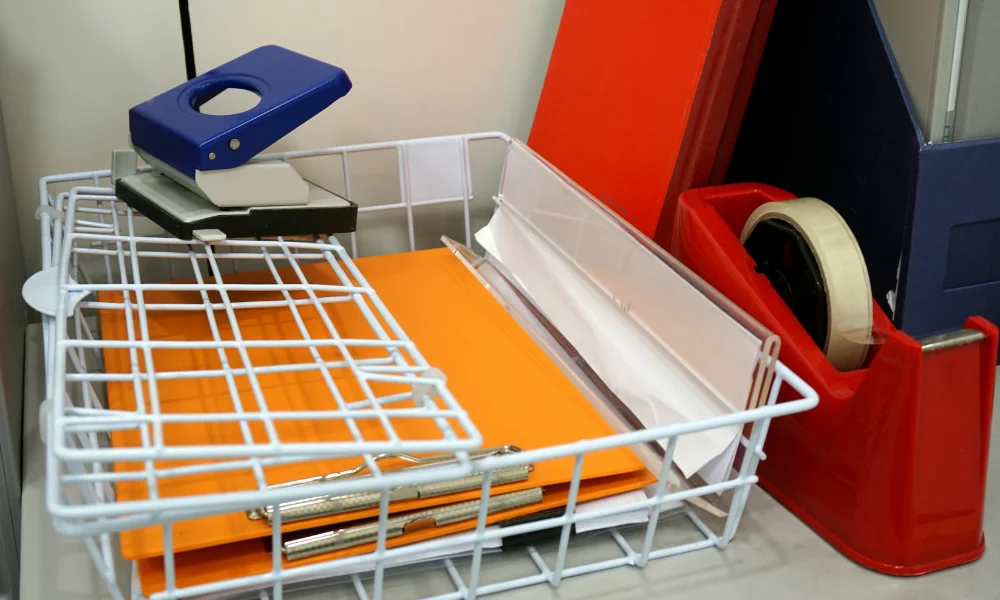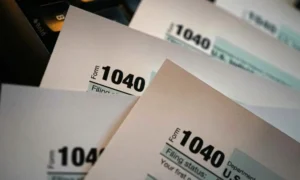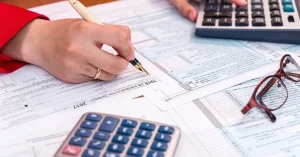Do you own a business? Do you feel confident in filing your business tax returns? Did you know that the IRS examined 196 million businesses’ tax returns in the fiscal year 2018?
So, should you spend the money on a tax professional to prepare your business taxes?
This can provide peace of mind. Or, should you save money and complete the tax return yourself?
Continue reading this article to read about business tax returns. You’ll learn about the tax definition for business equipment and supplies.
 What Is the Difference Between Business Equipment and Supplies?
What Is the Difference Between Business Equipment and Supplies?
Equipment
Equipment often represents items used over an extended period of time.
Section 179 of the IRS Tax code lets businesses deduct the entire price paid to buy, finance, or lease qualifying equipment. Then, you can deduct this amount from your gross income. Note: Always seek to learn more about the safety of equipment as well.
The purchase of all qualifying equipment must take place between January 1 and December 31 of the tax year you claim the deduction. Examples of qualifying equipment include:
- Machinery used in the business
- Tangible personal property used for business purposes
- Business vehicles that weigh over 6,000 pounds
- Computers
- “Off-the-shelf” computer software
- Office furniture
- Non-structural components of the building such as a printing press or large tools
- Specific business building improvements such as fire suppression, alarms and security systems, HVAC, and roofing
Equipment may be either new or used. Yet, it must be new to you for it to qualify for a tax deduction.
Supplies
The tax definition of supplies includes tangible objects used to conduct business. Supplies may include items used and replenished on a regular basis.
For example, you can include printer ink, pens, paper clips, printer paper, staples, and shopping bags.
Furniture may also qualify as office supplies if it’s used only for business purposes. This can include desks, chairs, tables, and shelves.
Business Expenses
 When evaluating business equipment and supplies, the term “expenses” often gets mixed in. According to the IRS, business expenses have a separate definition.
When evaluating business equipment and supplies, the term “expenses” often gets mixed in. According to the IRS, business expenses have a separate definition.
An expense refers to items and services used for the business. These items or services don’t meet other specific deduction categories.
Examples include paying for cleaning services, pest services, and general office maintenance. Some electronics and computer hardware may also fall into the expense category.
To ensure that you receive the maximum deductions allowed, keep all receipts. Also, establish a system for filing receipts according to the tax category — for example, equipment, supplies, maintenance, etc.
Define Business vs. Personal Use
 Always ensure that your records reflect the exact use of items in the operation of the business.
Always ensure that your records reflect the exact use of items in the operation of the business.
Deductible purchases must only serve business needs. They must never have a personal use.
To deduct the cost of a computer, it uses must entirely be for business purposes. The same is true for supplies such as printer ink or paper.
In the case of an IRS audit, you must show proof that it’s only used for business.
Business equipment used for both personal and business reasons is called “listed property.” The tax laws allow you to deduct a percentage of the cost if you prove that you use it for business.
It’s best to buy business equipment and supplies with a business credit card or bank account. Remember, this does not serve as proof that it’s a qualifying business expense.
What is Expensing?
 There is another “test” to determine the difference between business equipment and supplies.
There is another “test” to determine the difference between business equipment and supplies.
Supplies are only used on a short-term basis. The equipment has prolonged use and, thus, is a long-term asset.
Tax law considers current assets as items that are always depleted in a year.
Long-term assets last for several years. Thus, supplies are current assets, and their cost is tax-deductible.
What is Depreciation?
 Depreciation describes a specific accounting method. This involves dividing the cost of a long-term asset over its life expectancy.
Depreciation describes a specific accounting method. This involves dividing the cost of a long-term asset over its life expectancy.
The decrease in the asset’s value represents its depreciation. How does this help your business?
Your business continues to earn revenue while using the asset. At the same time, you can deduct a part of its purchase price on your taxes each year.
Choosing not to include depreciation can impact your profit margin.
It’s essential to consult with a tax professional when considering depreciation deductions. The IRS has many rules related to this deduction.
Computers, Mobile Phones, and Internet
 Hi-tech devices often fall into several different tax categories.
Hi-tech devices often fall into several different tax categories.
Many businesses, especially small businesses, use these items for business and personal reasons.
So how do you know where and how to list this on your taxes?
If you use your computer, cell phone, internet service, or software for business, you may be able to take a deduction.
If you buy a high-cost item, you must decide whether to deduct the entire cost or take the depreciation.
If you’ve had a high-income year, you may wish to decrease your profits and your tax burden. You will not be able to take any deductions in future years if you make this choice.
For most businesses, you can claim a percentage of time tech devices are used to conduct business. This includes internet and cell phone use.
Most professionals recommend against claiming a 100% deduction.
If you buy the newest generation of technology, ensure that you document the necessity of this tech level.
Some experts may view this as a perk rather than a necessary tool. The IRS’s standard defines a legitimate deduction as a usual, customary, necessary, and reasonable expense.
Make sure that your purchase relates directly to your business. Purchasing the latest computer device is reasonable for a computer consultant.
Yet, purchasing the same device for use by a salesperson in a shop may attract questions.
Make sure all purchases’ use is well documented and makes sense for your company.
Are You Unsure About Filing a Business Tax Return?
 The tax laws are complex and frequently change.
The tax laws are complex and frequently change.
For many business owners, this makes filing taxes an intimidating process. For example, understanding how to correctly report your equipment and supplies can be confusing.
Silver Tax Group provides representation for client protection related to your taxes. Chad C. Silver is a National Award-Winning Top Tax Attorney.
You can benefit from his established relationships with the Internal Revenue Service.
Contact us today for a free consultation.





